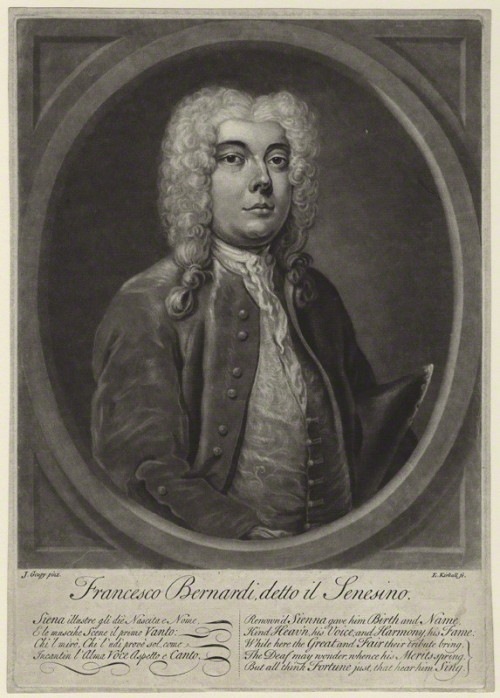The brief history of Castrati - part three (part one, part two)Serious opera in the first two-thirds
The brief history of Castrati - part three (part one, part two)Serious opera in the first two-thirds or so of the 18th century was dominated by a succession of famous castratos, of whom Nicolo Grimaldi (’Nicolini’), Antonio Maria Bernacchi, Francesco Bernardi (’Senesino’), Carlo Broschi (’Farinelli’), Giovanni Carestini, Gaetano Majorano (’Caffarelli’) and Gaetano Guadagni are only the best known. Such artists could command engagements in one European capital after another at unprecedented fees - in Turin the primo uomo’s fee for the carnival season was sometimes equal to the annual salary of the prime minister - while they also kept, as insurance, permanent appointments in a monarch’s chapel choir or a cathedral, and some of them performed there regularly.Their achievements are now difficult to gauge. Their command of vocal agility - of trills, runs and ornamentation, especially in the da capo section of an aria was clearly central to their success. So, at least for some, was a phenomenally wide range: Farinelli is said to have commanded more than three octaves (from c to d’“), others more than two, though, like some modern sopranos and tenors, they were apt to lose the upper part of their range as their careers wore on. It would, however, be a mistake to regard leading castratos as vocal acrobats and no more. Command of pathetic singing - soft, laden with emotion, powered by controlled devices such as messa di voce - was highly regarded: it was, for instance, central to the reputation of Gasparo Pacchiarotti. Nor was acting ability ignored: Guadagni’s performance as Gluck’s original Orpheus was thought deeply affecting. The issue is clouded by the habit of commentators through most of the 18th century of bemoaning the supposed decadence of opera through an excessive cult of vocalism and ornamentation. This was in part a literary convention. The cult flourished, and was in practice forwarded by some of those who decried it.Another contemporary habit that needs to be guarded against is that of mocking the castratos as grotesque, extravagant, inordinately vain near-monsters. This was in part a nervous reaction against a phenomenon experienced as sexually threatening twice over: the fact of castration was disconcerting in itself, yet according to legend (held by most modern medical opinion to be baseless, though perpetuated, along with much traditional obfuscation, in the 1995 film Farinelli) castratos could perform sexually all the better for the loss of generative power. In part the mockery visited upon castratos was roused by highly paid star singers in general, among whom they were the most prominent. Because of their musical education they often did well as teachers; some who had also had a general education acted in retirement, or even during their singing careers, as antiquarian, booksellers, diplomats, or officials in royal households. -- source link
Tumblr Blog : fuckyeahfarinelli.tumblr.com
#castrati#castrato#history#opera seria#italian#giovanni carestini#francesco bernardi#senesino#carlo broschi#farinelli#gioacchino conti#gizziello#18 century#18 century art#18 century music



